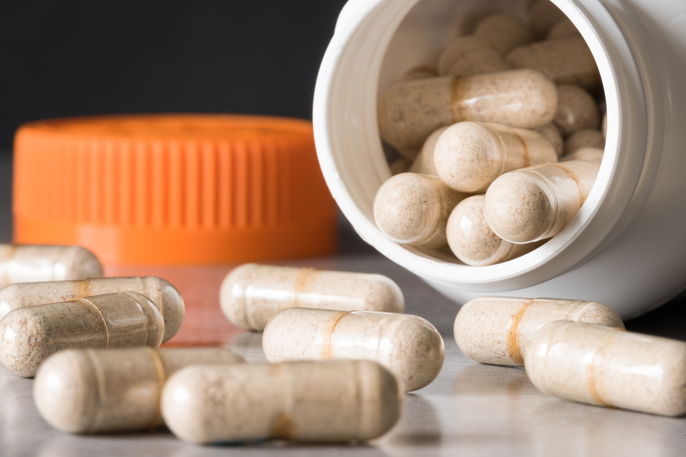Glucomannan is a plant-based fiber that is often taken for weight loss. It forms a type of gel in the stomach when consumed, which increases digestion time and keeps you fuller for longer between meals.
Glucomannan is extracted from Konjac root, a medicinal plant known scientifically as Amorphophallus konjac. It can also be taken to help combat constipation, as it softens the stool and adds water to it to promote easier bowel movements.
Glucomannan can be purchased at pharmacies and health food stores, in the form of supplements in capsules, tablets or powder. Additionally, glucomannan is also used to make flours and pastas, such as shirataki noodles.

Health benefits
Glucomannan is high in fiber which can provide several health benefits:
1. Promoting weight loss
Glucomannan is rich in soluble fibers that form a type of gel in the stomach. This increases the time it takes for food to digest, which can help to control appetite and reduce the amount of food consumed.
2. Regulating cholesterol and triglyceride levels
Glucomannan helps regulate LDL cholesterol and triglycerides in the blood, as it decreases the absorption of fat from food. It can help to prevent diseases such as atherosclerosis, high blood pressure and heart attack.
3. Fighting constipation
Because it is high in fiber, glucomannan helps combat constipation. It increases bulk and water in the stool, to make bowel movements easier.
4. Preventing diabetes
The fiber present in glucomannan helps to decrease the speed of sugar absorption from food in the intestines. This can help to control blood sugar levels, making it an excellent option for people who have pre-diabetes.
5. Preventing cancer
Glucomannan reduces the risk for colorectal cancer, as it contains soluble fibers that act as a prebiotic. It can favor the growth of good bacteria in the intestines to maintain the intestinal flora healthy and protect the intestine.
6. Improving inflammatory bowel diseases
Glucomannan can also help to treat inflammatory bowel diseases, such as ulcerative colitis and Crohn's disease. It helps eliminate harmful bacteria in the intestine, which can reduce swelling and boost immunity.
How to take
Glucomannan should be taken about 30 to 60 minutes before the main meals. You can take between 500 mg to 4 g of this supplement per day, which should be divided into two doses and always taken with 2 glasses of water.
The use of glucomannan should be done for up to 4 months and only under the direction of a doctor or registered dietitian.
Possible side effects
Taking glucomannan may cause some mild side effects, such as bloating, gas, loose stools, or diarrhea, but these negative effects are uncommon.
When taking glucomannan with little water, the stools can become very dry and hard, causing severe constipation, or even intestinal obstruction, a serious situation that requires immediate medical attention.
Additionally, if glucomannan expands before reaching the stomach, it can cause choking or a blocked throat. Therefore, glucomannan should always be taken with 2 glasses of water.
Contraindications for use
Glucomannan is not recommended for children, pregnant women or breastfeeding women. This supplement is contraindicated for people with a history or active blockage in the esophagus or stomach, or for those with diseases that cause difficulty swallowing, such as Parkinson's disease, stroke and multiple sclerosis.
People who use hypoglycemic drugs, insulin or any other medication should always consult a doctor before using glucomannan, as this supplement can alter the effect of some medications.






























